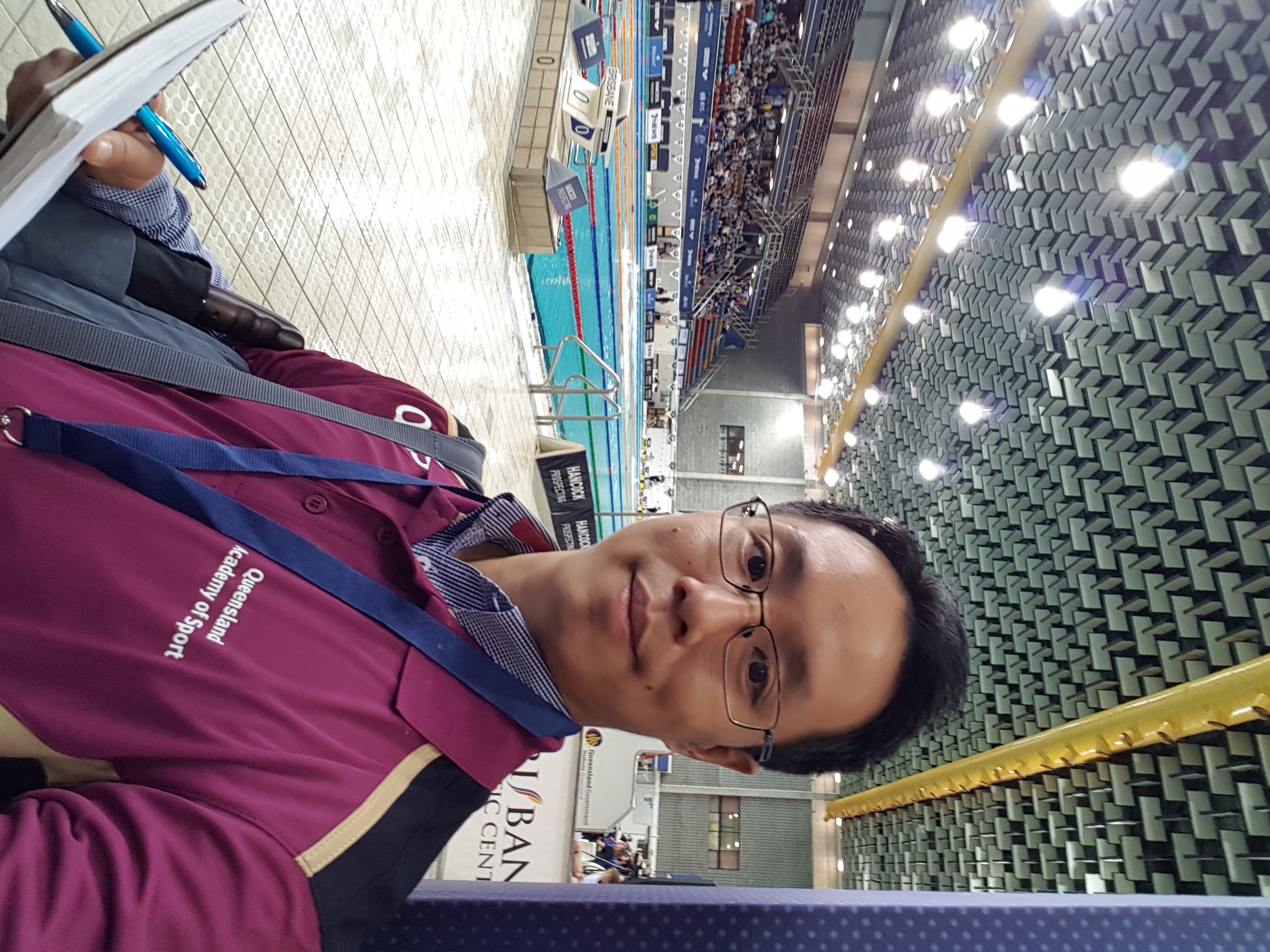Support for elite athletes to reach their peak performance has been given a boost with a new partnership involving QUT, the Australian Institute of Sport and the Queensland Academy of Sport.
The new deal brings together top experts to tackle key challenges and support day-to-day decisions in sports and fitness.
The key aim is to help foster new innovations at the intersection of data science, and the sports, exercise, sport science and sport medicine.
QUT's Dr Paul Wu, from the Centre for Data Science, will be employed as an Industry Research Fellow working with a team including three PhD students.
"This unique opportunity brings together researchers, practitioners and end-users in sports such as swimming, triathlon, and Australian football," he said.
Dr Wu said the partnership will help build an understanding, analysis and predictive models of athlete injury risk, training and fatigue, performance in a whole-of-systems model over time.
"What makes this project so exciting is the growing availability of comprehensive data across the many dimensions of an athlete's health, training and performance," Dr Wu said.
"Working with industry partners will ensure collaborative development and uptake of new insight that can benefit elite athletes, with a view to benefitting the wider community in the future.
"It is particularly thrilling to be a part of a project like this as we keenly wait to hear whether Brisbane gets the final approval to host the 2032 Olympics."
Dr Wu said a key part of the analysis would be to try to determine "what it takes to win".
"In that regard, the data includes trajectory analysis of world records and individual careers, characterisation of the competition, depth charts, trends, and breakout performance predictions.
"For training, there is a need to balance potential performance gains against fatigue."
 Dr Wu said there were two main types of fatigue to assess during training, metabolic and neuromuscular.
Dr Wu said there were two main types of fatigue to assess during training, metabolic and neuromuscular.
"By testing athletes just prior and just after low, moderate and high-intensity training and using a statistical analytic tool we can unlock a lot of hidden information about fatigue," Dr Wu said.
"This is empowering information for the athletes, trainers and coaches to help ensure peak performance."
The sports data science toolbox contributes to data collection, data exploration, visualisation and modelling and analysis and decision support.
Dr Wu said this toolbox would focus on several case study sports and develop methods for risk informed decisions to support athletes' training, fatigue, injury, and performance.
The QAS through its Sport Performance Innovation and Knowledge Excellence (SPIKE) hub recognises the collaboration as a continuation of its pursuit as an innovative leader in high-performance sport solutions.
"This partnership will help the QAS achieve its ambition of inspiring extraordinary sporting success by enabling high-performance sport to collect, interpret and leverage data intelligence for a data-drive competitive advantage," said SPIKE Manager Jeff Greenhill.
Dr Wu will also supervise three PhD scholarships to explore targeted data science challenges within a sports industry.
Dr Wu is also an Associate investigator with the Australian Research Council Centre of Excellence for Mathematical and Statistical Frontiers.






